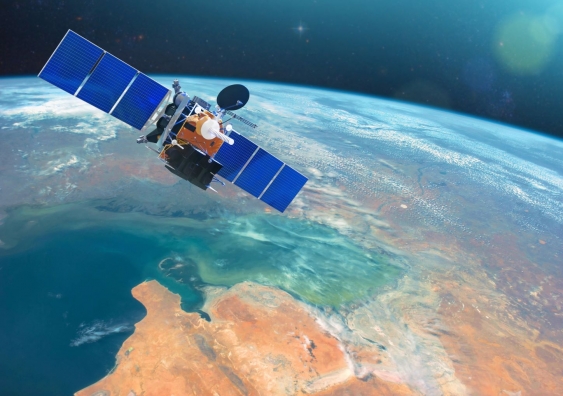UNSW Sydney awarded more than $4.1m for ARC Linkage Projects
Eleven new grants for industry collaboration will fund research in engineering, science, and critical social issues.
Eleven new grants for industry collaboration will fund research in engineering, science, and critical social issues.

The Australian Research Council (ARC) has awarded 11 UNSW researchers grants totalling more than $4.1 million in the latest round of Linkage Projects.
The funding will support projects ranging from a device that can generate electricity from moisture in the air to creating more accessible volunteering opportunities for culturally and linguistically diverse (CALD) immigrants who have suffered social isolation arising from COVID-19.
UNSW Professor Nicholas Fisk, Deputy Vice-Chancellor, Research & Enterprise, congratulated the University’s researchers on their awards, and in particular the high 37 per cent success rate.
“With 11 ARC Linkage Project grants this round, UNSW has received the highest number in the country. This is especially significant given the government’s increasing focus on industry linkage, so its pleasing to see our academics collaborating at scale to address some of the big challenges facing Australia,” Prof. Fisk said.
Professor Justin Gooding at UNSW Science has received $499,000. Prof. Gooding’s research aims to provide a simple method for creating complex 3D cell cultures for in vitro cell based assays using 3D printing. The 3D cell cultures will be used in fundamental cell biology, studying diseases and developing new drugs.
Professor Dewei Chu at UNSW Science has received $486,640 for a project that aims to develop a next generation energy harvesting device which can directly generate electricity from moisture in the air for self-powered, wearable electronics. This will be achieved by developing a new class of carbon-based nanomaterials and large-scale printing technology.
Associate Professor Belinda Ferrari at UNSW Science has received $466,656 for a project that will identify factors contributing to environmental resilience in the east Antarctic soil mycobiome. The research will assist the Royal Botanical Gardens and Domain Trust quantify and qualify fungal biodiversity and build a program to inform future management and restoration of Australian ecosystems.
Dr Amandine Schaeffer at UNSW Science has received $441,371 for a project that will shed new light on bluebottle dynamics, pathways, and distribution on beaches. In partnership with Surf Life Saving Australia (SLSA), the project will develop the first bluebottle risk prediction tool for Australia’s popular beaches.
Professor Gavin Conibeer at UNSW Engineering has received $437,060 for a project that will develop thin silicon solar cells for space applications. Space cells require good radiation resistance to give good end of life performance. This project will develop ultrathin silicon cells with extreme light trapping and improved radiation tolerance to give high beginning and end of life efficiencies.
Associate Professor Kate Quinlan at UNSW Science has received $412,919. This collaboration between UNSW Sydney and CSL aims to develop an optimal platform for genetic modification in a red blood cell line. Simultaneously, this project aims to generate fundamental insights into mechanisms of human gene regulation.
Professor Vinayak Dixit at UNSW Engineering has received $345,388. Prof. Dixit’s project will research factors inducing motion sickness in automated (self-driving) vehicles and evaluate an individuals’ preferences between comfort and travel attributes such as in-vehicle tasks. It will develop mitigation strategies for motion sickness in automated vehicles to help improve adoption of these vehicles on the roadways.
Dr Shaghik Atakaramians at UNSW Engineering has received $327,239. The transition to a society consuming enormous amounts of digital data has accentuated the need for high-speed data links. Dr Atakaramians’ project aims to create a novel class of polymer terahertz fibres to replace the current lossy wires that are bandwidth limited.
Professor Bingqin Li at UNSW Arts, Design & Architecture has received $301,000 for a project that will address a challenge arising from COVID-19: how to make volunteering activities more accessible to CALD immigrants who suffer from serious social isolation. The project team will work with partner organisations to study Chinese immigrants in NSW.
Dr Ailar Hajimohammadi at UNSW Engineering has received $210,000 for a project that will develop high-performance lightweight concrete noise walls and acoustic barriers that use recycled tyre and glass products. These products will improve sound absorption, and address environmental problems associated with the mining of river sands and stockpiling of waste tyre and glass products.
Professor Cordelia Selomulya at UNSW Engineering has received $180,000. Encapsulation of fats and oils into powders in the food industry (including creamers, soups, infant formula) is an integral part to extending their shelf life, nutritional content, and functionality. This project will generate new protocols to produce high-fat powders, resulting in improved production efficiency and new products from recovered ingredients.
A total of $31.8 million was awarded for 68 new research grants under this round of the 2021 Linkage Projects scheme. Linkage grants enable research teams from around Australia to partner with industry, business and community organisations to drive innovation and deliver outcomes and solutions to benefit all Australians.
Read more: UNSW researchers awarded more than $7.9m for infrastructure and linkage projects